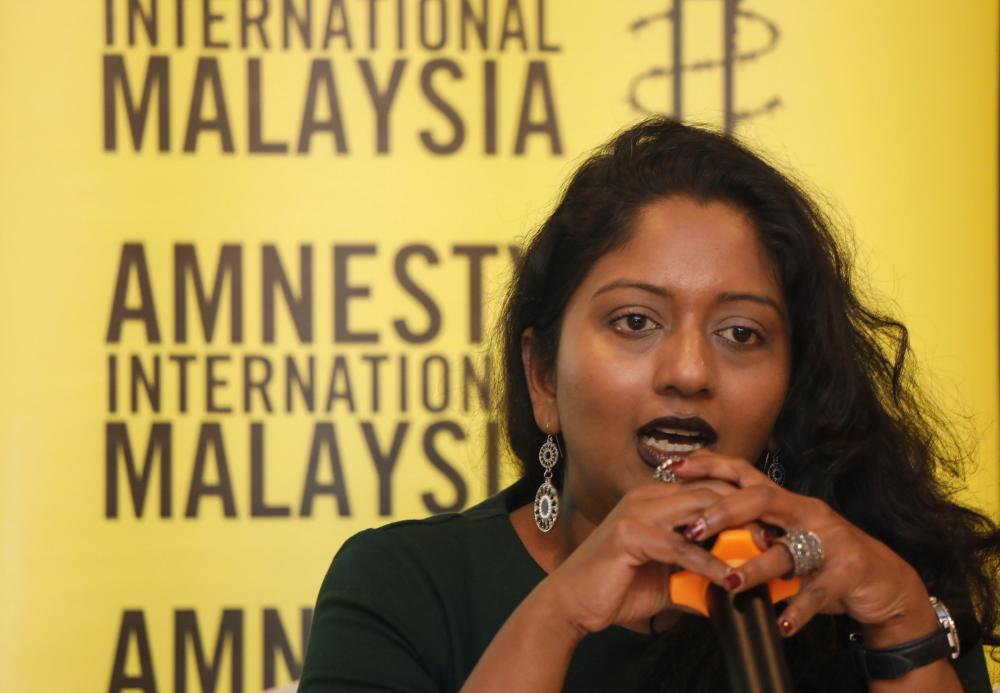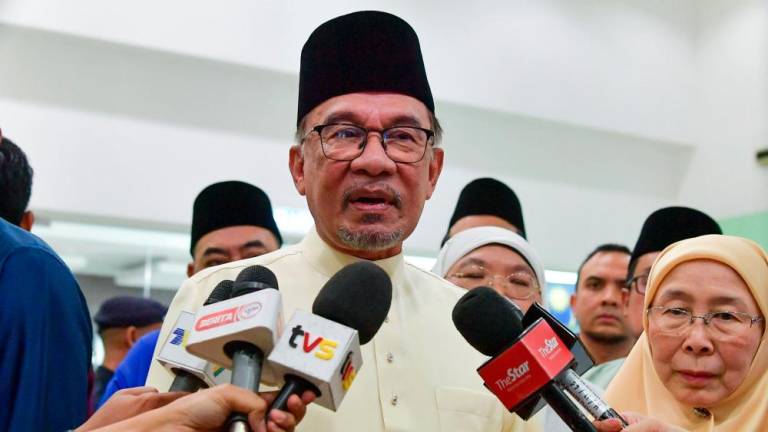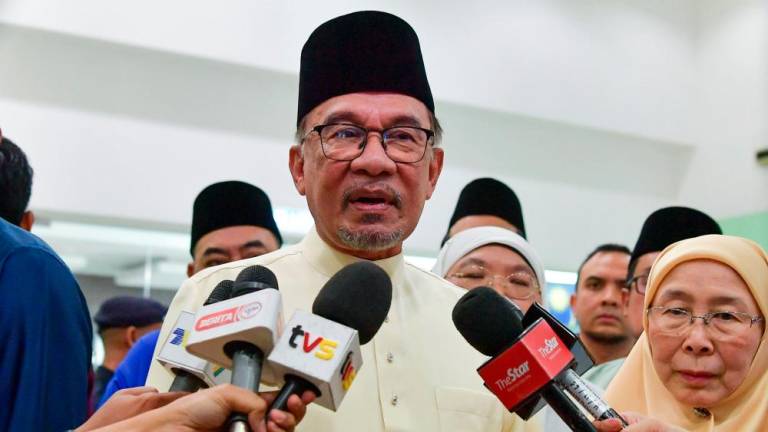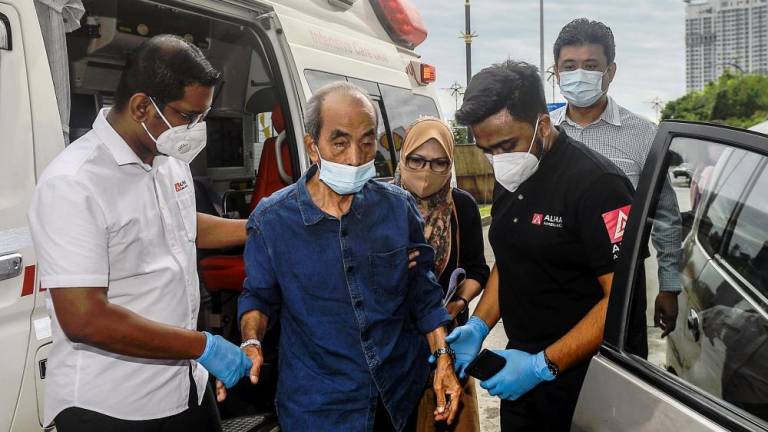PETALING JAYA: A year after the Pakatan Harapan coalition swept to power following the 14th general election, civil society organisations are hoping to see a clear and strategic road map for the implementation of human rights reforms as promised in its manifesto.
Amnesty International Malaysia executive director Shamini Darshni Kaliemuthu said when the government first assumed power last year, it had notable intentions to introduce reforms including amending or abolishing repressive legislation and acceding to or ratifying international human rights instruments.
“However, after a year in power, we see a lack of clear direction towards these reforms. We need to see a plan that is clearly articulated and in the spirit of promoting and protecting human rights,“ she said at a joint press conference with Human Rights Watch today.
She lamented that oppressive laws that contravene human rights, such as the Sedition Act, remain in effect in this era; a moratorium on the Act was imposed in October last year but it was lifted in December following the investigations into the Sri Maha Mariamman temple riots in USJ 25.
“Since then, we have seen the Sedition Act being used to investigate human rights defenders such as organisers of the Women’s March and most recently the organisers of the forum looking into the Rome Statute,“ she said.
She said that the government had not fulfilled its promise to abolish the death penalty, as Law Minister Liew Vui Keong announced that the abolition will be in its totality, only to announce in March that it would revert to its original promise in the manifesto, to abolish the mandatory death penalty.
“We are disappointed but we consider the abolition of the mandatory death penalty as a step in the right direction towards total abolition. The PH government needs to remain steadfast and demonstrate its commitment to human rights by first abolishing the mandatory death penalty, then full abolition,“ she said.
Shamini commended the federal government for taking the historic step of instituting legal action against the state of Kelantan in seeking legal recognition of native land rights of the Temiar Orang Asli.
“We hope we will see the government step in when the rights of other Orang Asli communities are being violated, including in indigenous land issues,“ she said.













